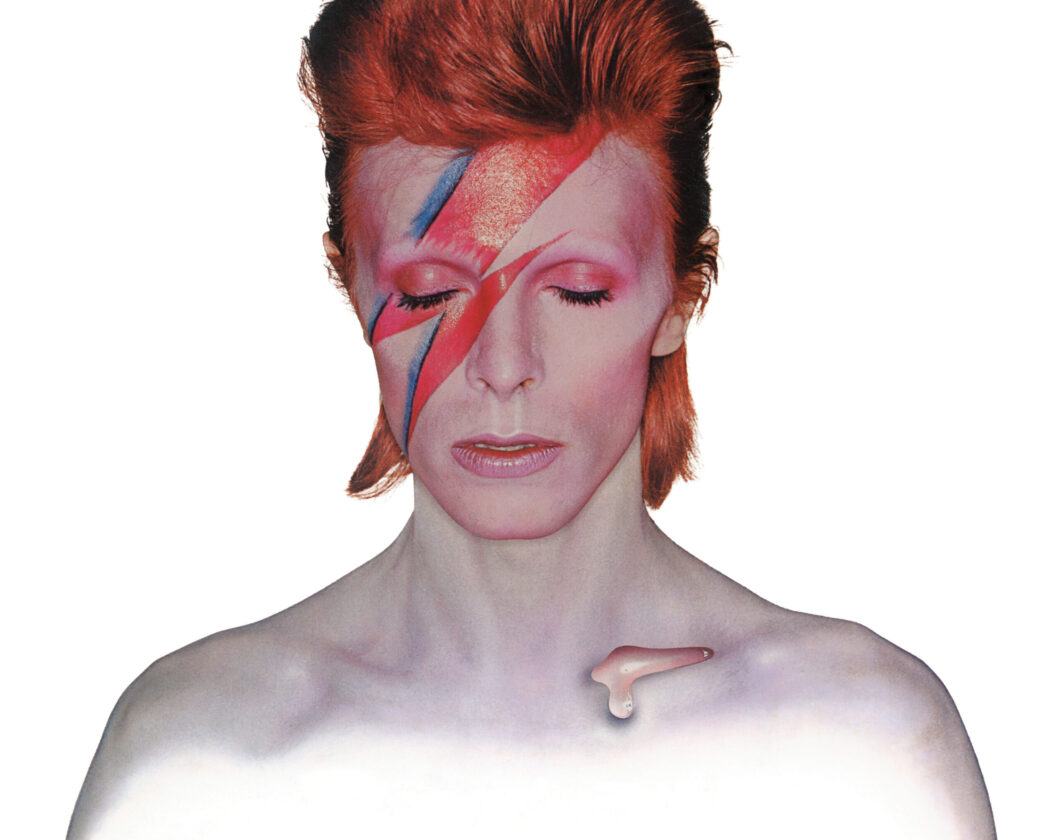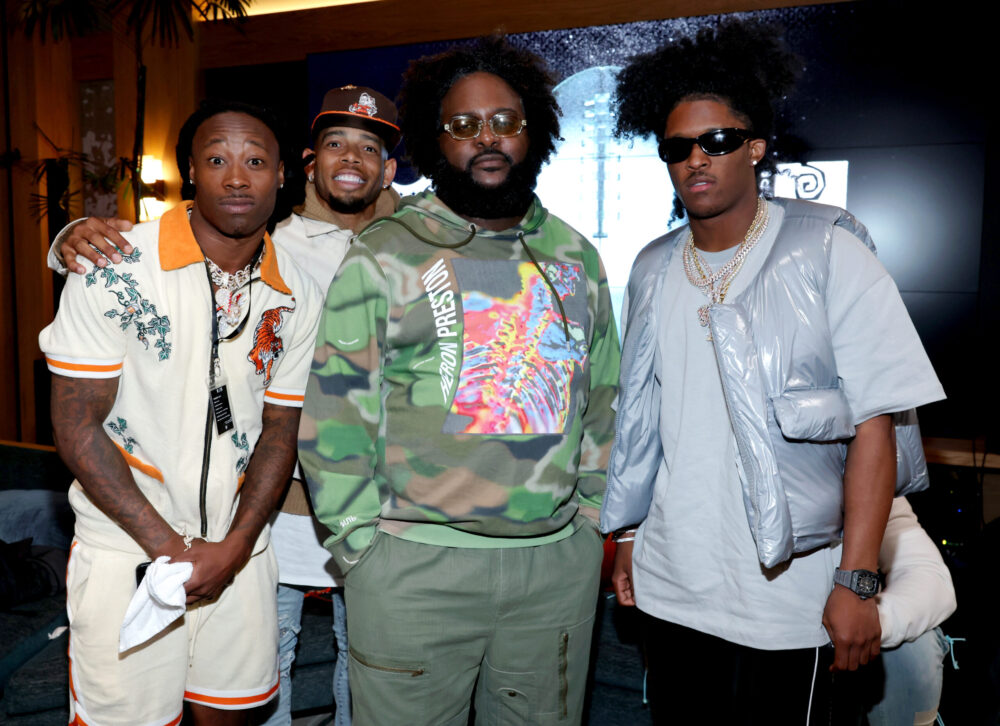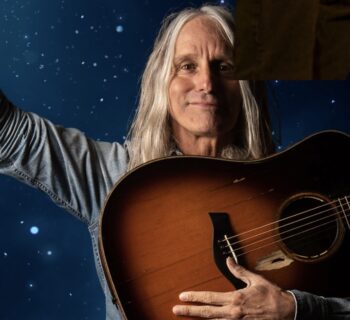April 2023 marks the 50th anniversary of the release of David Bowie’s Aladdin Sane, which was released only ten months after his breakthrough album The Rise and Fall of Ziggy Stardust and the Spiders from Mars. The title track and songs such as “Panic in Detroit,” “Lady Grinning Soul,” and “Time” marked a significant musical progression from its predecessor, adding brass, woodwind, soulful backing vocals and the distinctive piano playing of Mike Garson.
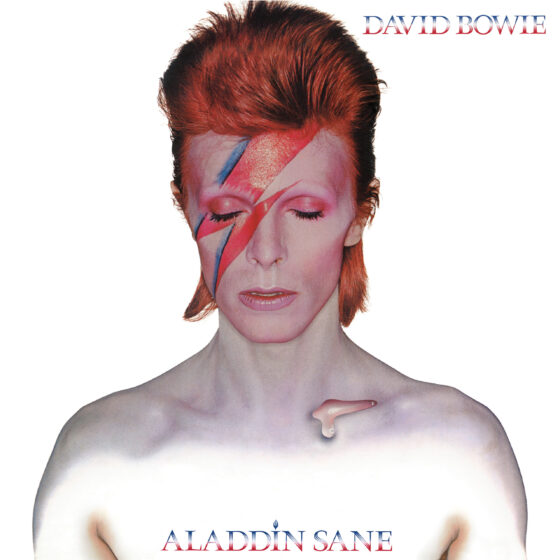
Originally released by RCA Victor on April 13, 1973, Aladdin Sane was David Bowie's sixth album, co-produced by Bowie and Ken Scott. This was an incredibly busy time for Bowie - Ziggy Stardust had made him a massive star in the UK and he was touring extensively in the US, where most of the album's songs were written while he was on the road.
Recorded at Trident Studios, London and RCA Studios, New York and Nashville, between October 6, 1972 and January 24, 1973, it was be to be the last album on which the Spiders' line-up of Mick Ronson (guitar, piano, backing vocals), Trevor Bolder (bass) and Mick 'Woody' Woodmansey (drums) would appear.
The album featured the debut of one of Bowie's new collaborators, avant-jazz pianist Mike Garson. In addition to vocals, Bowie himself played guitar, harmonica, keyboards and saxophone on the album.
DAVID BOWIE - ALADDIN SANE
SIDE ONE
Watch That Man – 4:30
Aladdin Sane (1913-1938-197?) – 5:06
Drive-In Saturday – 4:33
Panic In Detroit – 4:25
Cracked Actor – 3:01
SIDE TWO
Time – 5.15
The Prettiest Star – 3:31
Let’s Spend The Night Together – 3:10
The Jean Genie – 4:07
Lady Grinning Soul – 3:45
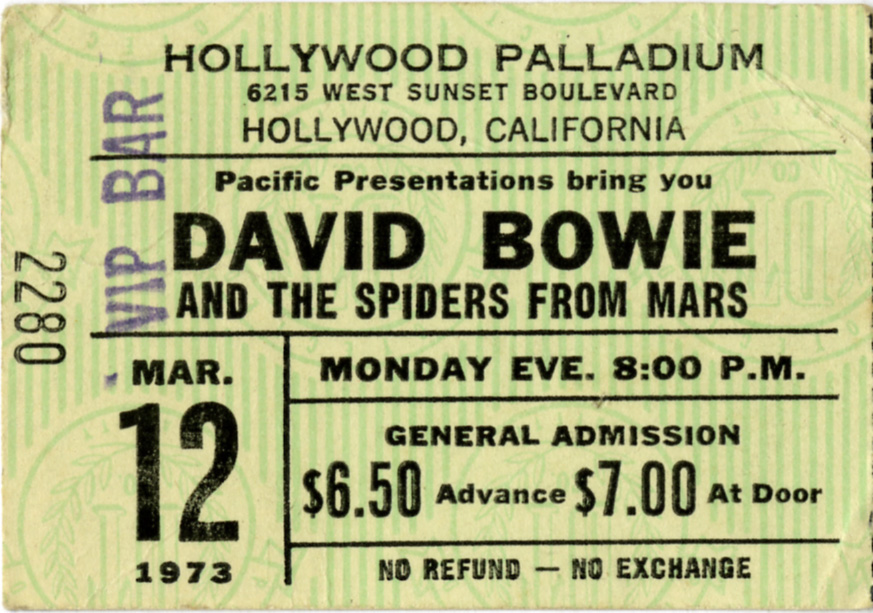
I witnessed two monumental David Bowie Ziggy Stardust concerts in Santa Monica and Hollywood during 1972-1973.
With Aladdin Sane, Bowie forged a sonic socio-political freedom travelogue that wordsmiths Jack Kerouac and Allen Ginsberg would be proud of.
In 1974 during Bowie’s Diamond Dogs tour, I spent half an hour with David at the Beverly Wilshire Hotel. We talked about beat generation literature and R&B music while glimpsing at an episode of Soul Train on television. There was a commercial for a hair product, Afro Sheen. In Bowie’s “Young Americans” he sings “Blushing at all the Afro-Sheeners.” We attended an Al Green concert at the Universal Ampitheater.
I gave David a paperback copy of Ann Charters’ Jack Kerouac: A Biography, knowing his Spiders from Mars band name was an homage to Kerouac’s On the Road: “exploding like spiders across the stars.” Charter’s book is seen by his hotel bedside in the Omnibus Cracked Actor 1975 UK documentary which aired on the BBC 1 channel.
On September 18, 1975 I interviewed David in Los Angeles at Television City inside the CBS studios on the corner of Fairfax Avenue and Beverly Boulevard. Bowie was taping the Cher TV show for a November 9th broadcast. I covered it for the now defunct Melody Maker in their October 25, 1976 issue.
It was obvious that David had already departed visually, musically and emotionally from the self-imposed world of Ziggy Stardust character into his acting journey with The Man Who Fell to Earth.
“The difference between film acting and stage acting is enormous. On stage you are in total control, whereas in a film the actors are instruments of the director. I think a stage performance is more of a ceremony and one plays the high priest. But in a film, you are evoking a spirit within yourself. You feel a tremendous responsibility of having the power to bring something to life. For example, Major Tom in ‘Space Oddity.’”
Harvey Kubernik is the author of 20 books, including 2009’s Canyon Of Dreams: The Magic And The Music Of Laurel Canyon and 2014’s Turn Up The Radio! Rock, Pop and Roll In Los Angeles 1956-1972. Sterling/Barnes and Noble in 2018 published Harvey and Kenneth Kubernik’s The Story Of The Band: From Big Pink To The Last Waltz. In2021 they wrote Jimi Hendrix: Voodoo Child for Sterling/Barnes and Noble. Otherworld Cottage Industries in 2020 published Harvey’s Docs That Rock, Music That Matters.
Kubernik’s writings are in several book anthologies. Most notably, The Rolling Stone Book Of The Beats and Drinking With Bukowski. Harvey wrote the liner notes to the CD re-releases of Carole King’s Tapestry, The Essential Carole King, Allen Ginsberg’s Kaddish, Elvis Presley The ’68 Comeback Special, The Ramones’ End of the Century and Big Brother & the Holding Company Captured Live at The Monterey International Pop Festival.
During 2006 Harvey spoke at the special hearings initiated by The Library of Congress held in Hollywood, California, discussing archiving practices and audiotape preservation.
In 2017 Harvey Kubernik appeared at the Rock and Roll Hall of Fame in Cleveland, Ohio, as part of their Distinguished Speakers Series.

